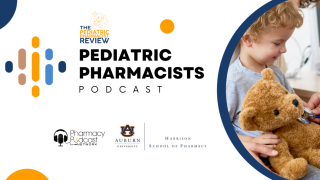COVID-19 and MERS Coinfections Confirmed in Saudi Arabia

This case series study published by the journal Travel Medicine and Infectious Disease is a unique contribution to the medical literature by examining the coinfection of two emerging respiratory pathogens, MERS-CoV and SARS-CoV-2.
These two coronaviruses had the chance to cause significant disease in the Kingdom of Saudi Arabia, said these researchers on March 13, 2021.
The Kingdom had gained great experience from previous MERS-CoV infection and had adopted significant infection control and preventative measures. MERS-CoV was first reported in the Kingdom in 2012.
In an initial cohort of 99 cases tested simultaneously for MERS-CoV and SARS-CoV-2, none of them had SARS-CoV-2 and MERS-CoV coinfection.
However, in this recent study, 12% of the tested patients were positive for both SARS-CoV-2 and MERS-CoV. It was reported that in the past few years, MERS-CoV positivity rates among suspected cases were up to 6%.
The Epidemiology of MERS-CoV infection in Saudi Arabia is well characterized by sporadic cases from Camel exposure followed by either hospital or community transmission. However, these researchers were not able to pinpoint the exact exposure of infection of the included patients.
This case series showed that 37.5% of ICU coinfected patients had died.
Previous studies of MERS-CoV showed a case fatality rate of 30%, with an increasing rate among those with comorbidities, critically ill patients, severe disease, those > 65 years of age, hospital-acquired infections, and corticosteroid use.
However, corticosteroids are associated with a decreased case fatality rate in randomized controlled trials of COVID-19 patients from 25.7% in standard therapy to 22.9% in the dexamethasone group.
One-half of the included patients had gastrointestinal symptoms. Previously, gastrointestinal symptoms were reported in 33% of MERS-CoV patients. And 29% of COVID-19 patients had gastrointestinal symptoms.
In addition, the majority of hospitalized MERS-CoV patients had fever, cough, and shortness of breath in addition to pneumonia on chest x-ray.
In conclusion, this case series study is crucial as it showed the interaction of the coinfection of SARS-CoV-2 and MERS-CoV. Although (87.5%) were in the ICU, a conclusion could not be drawn as all screened patients for MERS and SARS-CoV-2 were from those admitted to the ICU.
With the COVID-19 pandemic, there is a need to continue preventive measures, including social distancing and universal masking. These measures remain enforced in the Kingdom of Saudi Arabia. These measures are essential for the control of COVID-19, said these researchers.
From 2012 through December 2020, a total of 2,566 laboratory-confirmed cases of MERS-CoV and 882 associated deaths were reported globally to the WHO.
In 2020, Saudi Arabia reported MERS-CoV cases in Riyad (25), Asir (7), Eastern Province (6), and Makkah (6).
As of March 14, 2021, the U.S. CDC had not approved a MERS-CoV prevention vaccine.
CoronavirusToday publishes research-based news.
Our Trust Standards: Medical Advisory Committee
























